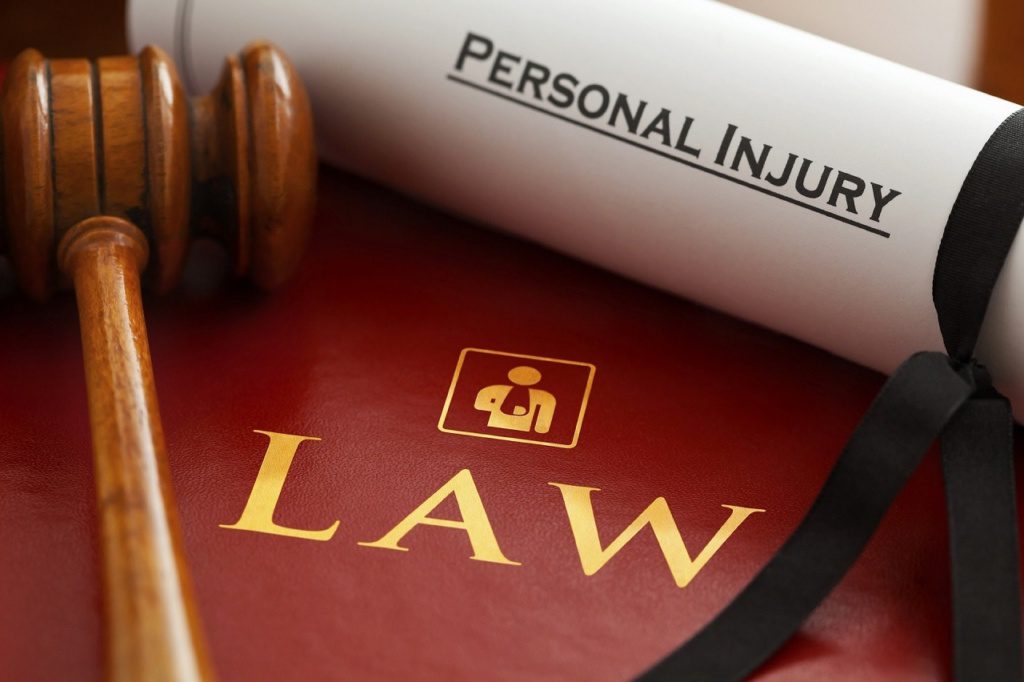Personal injury lawsuits are legal disputes that arise when an individual suffers harm due to the negligence or wrongful actions of another party. These cases can encompass a wide range of incidents, including car accidents, slip and fall accidents, medical malpractice, and product liability claims. The fundamental principle behind personal injury law is to provide a remedy for the injured party, allowing them to seek compensation for their losses.
This compensation can cover medical expenses, lost wages, pain and suffering, and other damages resulting from the incident. The legal framework governing personal injury lawsuits varies by jurisdiction, but the underlying concepts remain consistent. In most cases, the injured party, known as the plaintiff, must establish that the defendant owed a duty of care to the plaintiff, breached that duty, and caused harm as a direct result of that breach.
This process often involves gathering evidence, witness testimonies, and expert opinions to substantiate the claim. Understanding these elements is crucial for anyone considering a personal injury lawsuit, as they form the foundation upon which a case is built.
Key Takeaways
- Personal injury lawsuits are legal disputes that arise when one person suffers harm from an accident or injury, and someone else may be legally responsible for that harm.
- Before filing a lawsuit, it’s important to consider factors such as the severity of the injury, the evidence available, and the statute of limitations for filing a claim.
- Seeking legal advice from a personal injury attorney is crucial to understand your rights, assess the strength of your case, and navigate the complex legal process.
- Potential compensation for personal injury claims may include medical expenses, lost wages, pain and suffering, and punitive damages in some cases.
- Steps to take in filing a personal injury lawsuit include gathering evidence, documenting the injury and its impact, and filing the necessary paperwork within the statute of limitations.
Factors to Consider Before Filing a Lawsuit
Before embarking on the journey of filing a personal injury lawsuit, several critical factors must be taken into account. One of the primary considerations is the severity of the injuries sustained. If the injuries are minor and do not result in significant medical expenses or lost wages, pursuing legal action may not be worthwhile.
In such cases, the costs associated with litigation could outweigh any potential compensation received. Evaluating the extent of injuries and their impact on daily life is essential in determining whether a lawsuit is justified. Another important factor is the strength of the evidence available to support the claim.
A successful personal injury lawsuit relies heavily on concrete evidence that demonstrates negligence or wrongdoing on the part of the defendant. This may include police reports, medical records, photographs of the accident scene, and witness statements. If the evidence is weak or inconclusive, it may be prudent to reconsider filing a lawsuit.
Additionally, understanding the applicable statutes of limitations in your jurisdiction is vital, as these laws dictate the timeframe within which a lawsuit must be filed.
The Importance of Seeking Legal Advice

Navigating the complexities of personal injury law can be daunting for individuals without legal expertise. Seeking legal advice from an experienced personal injury attorney is crucial for several reasons. First and foremost, attorneys possess in-depth knowledge of the law and can provide valuable insights into the viability of a case.
They can assess the specifics of an incident and determine whether there are grounds for a lawsuit based on established legal principles. Moreover, personal injury attorneys can guide clients through the intricate process of filing a lawsuit. This includes gathering necessary documentation, adhering to procedural requirements, and negotiating with insurance companies.
An attorney’s experience in dealing with similar cases can significantly enhance the likelihood of a favorable outcome. Additionally, many personal injury lawyers work on a contingency fee basis, meaning they only get paid if their client receives compensation. This arrangement allows individuals to pursue legal action without incurring upfront costs.
Potential Compensation for Personal Injury Claims
Compensation in personal injury claims can vary widely depending on the circumstances surrounding each case. Generally, damages are categorized into two main types: economic and non-economic damages. Economic damages refer to quantifiable financial losses incurred as a result of the injury.
This includes medical expenses, rehabilitation costs, lost wages due to time off work, and any future earning potential that may be affected by the injury. Non-economic damages, on the other hand, encompass intangible losses that are more challenging to quantify. These may include pain and suffering, emotional distress, loss of enjoyment of life, and loss of companionship.
Courts often consider various factors when determining non-economic damages, such as the severity of the injury, its impact on daily life, and the duration of recovery. In some cases, punitive damages may also be awarded if the defendant’s actions were particularly egregious or reckless. Understanding these potential compensation avenues is essential for individuals pursuing personal injury claims.
Steps to Take in Filing a Personal Injury Lawsuit
Filing a personal injury lawsuit involves several critical steps that must be followed meticulously to ensure a successful outcome. The first step typically involves consulting with a personal injury attorney who can evaluate the case and provide guidance on how to proceed. Once it is determined that there are grounds for a lawsuit, the attorney will begin gathering evidence to support the claim.
This may include collecting medical records, accident reports, photographs, and witness statements. After gathering sufficient evidence, the next step is to file a complaint with the appropriate court. This document outlines the plaintiff’s allegations against the defendant and specifies the damages sought.
Once filed, the defendant will be served with a copy of the complaint and given an opportunity to respond. Following this initial phase, both parties may engage in discovery—a process where they exchange information and evidence relevant to the case. This stage can be lengthy and may involve depositions and interrogatories before proceeding to trial or settlement negotiations.
The Role of Insurance Companies in Personal Injury Cases

Insurance companies play a crucial role in personal injury cases, often representing defendants or providing coverage for claims made against their policyholders. When an individual files a personal injury lawsuit, it is common for insurance companies to become involved early in the process.
Their primary objective is to minimize financial liability while protecting their insured clients’ interests. This often leads to negotiations between attorneys representing both parties.
Insurance adjusters typically assess claims by reviewing medical records, accident reports, and other relevant documentation to determine liability and evaluate potential compensation amounts. It is essential for plaintiffs to understand that insurance companies may attempt to settle claims quickly and for lower amounts than what is fair or justifiable.
Therefore, having legal representation can help ensure that individuals do not accept inadequate settlements that fail to cover their actual losses.
The Timeframe for Filing a Personal Injury Lawsuit
The timeframe for filing a personal injury lawsuit is governed by statutes of limitations that vary by jurisdiction and type of claim. Generally speaking, most states impose a deadline ranging from one to six years from the date of the incident in which an individual must file their lawsuit. Failing to file within this timeframe can result in losing the right to pursue legal action altogether.
It is crucial for individuals considering a personal injury lawsuit to be aware of these deadlines and act promptly. In some cases, certain circumstances may toll or extend these deadlines; for example, if the injured party was incapacitated at the time of the incident or if fraud was involved in concealing evidence related to the claim. Consulting with an attorney can provide clarity on specific timelines applicable to individual cases.
Alternative Options to Consider Before Filing a Lawsuit
Before deciding to file a personal injury lawsuit, individuals should explore alternative options that may resolve their disputes more amicably and efficiently. One common alternative is negotiation with the at-fault party or their insurance company directly. Many personal injury claims are settled out of court through negotiations that can lead to satisfactory compensation without incurring litigation costs.
Mediation is another option worth considering; this involves bringing in a neutral third party who facilitates discussions between both parties in an effort to reach a mutually agreeable resolution. Mediation can often be less adversarial than traditional litigation and allows for more flexible solutions tailored to both parties’ needs. Additionally, arbitration may serve as an alternative dispute resolution method where an arbitrator makes binding decisions based on evidence presented by both sides.
Exploring these alternatives can save time and resources while potentially leading to satisfactory outcomes without resorting to lengthy court battles. However, it remains essential for individuals to consult with legal professionals who can provide guidance on which option may be most appropriate based on their unique circumstances and goals.
If you are considering filing a personal injury lawsuit when another is at fault, you may also want to read about civil rights violations on indigentlaw.org. Understanding your rights and protections under the law is crucial when seeking justice for injuries caused by someone else’s negligence. Additionally, the article on increased risk from criminal investigations on indigentlaw.org may provide valuable insights into potential legal challenges you may face during the litigation process. It is important to be informed and prepared when pursuing a personal injury claim.
FAQs
What is a personal injury lawsuit?
A personal injury lawsuit is a legal action taken by an individual who has been injured due to the negligence or intentional actions of another party. The injured party seeks compensation for their damages, which can include medical expenses, lost wages, and pain and suffering.
When should I consider filing a personal injury lawsuit?
You should consider filing a personal injury lawsuit if you have been injured due to the negligence or intentional actions of another party and have suffered damages as a result. It is important to consult with a personal injury attorney to determine if you have a valid case.
What are the steps involved in filing a personal injury lawsuit?
The steps involved in filing a personal injury lawsuit typically include gathering evidence, filing a complaint with the court, and engaging in the discovery process. This may involve depositions, interrogatories, and requests for documents. The case may then proceed to trial or be settled out of court.
What types of damages can I seek in a personal injury lawsuit?
In a personal injury lawsuit, you can seek compensation for various types of damages, including medical expenses, lost wages, pain and suffering, and emotional distress. The specific damages you can seek will depend on the circumstances of your case.
How can a personal injury attorney help with my case?
A personal injury attorney can help with your case by providing legal advice, representing you in negotiations with the at-fault party or their insurance company, and advocating for your rights in court. They can also help gather evidence, assess the value of your claim, and navigate the legal process.

